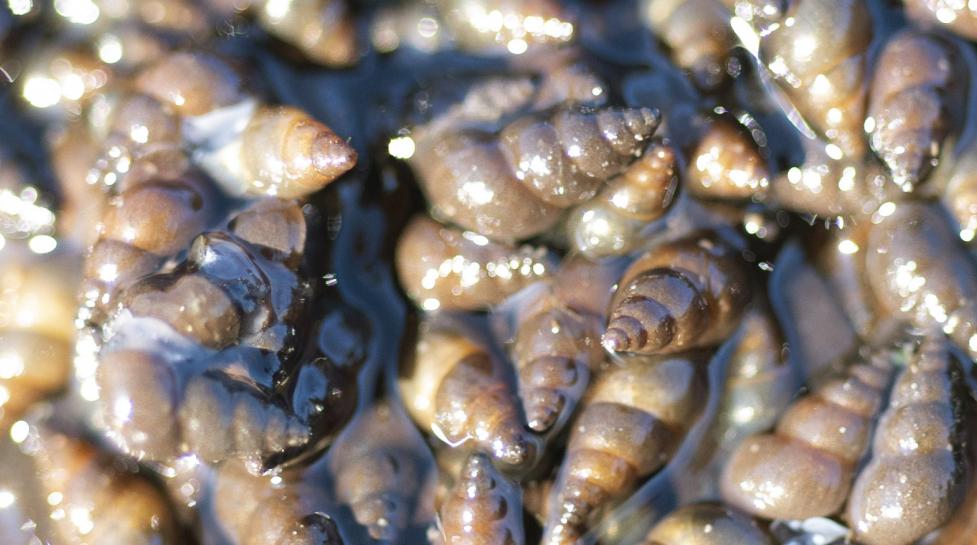The city also will conduct extensive ecological restoration efforts in the creek corridor. The South Mesa Trailhead and the Mesa Trail will remain open.
The City of Boulder has closed access to South Boulder Creek at the South Mesa Trailhead to prevent the spread of a highly invasive aquatic species in one of the most diverse stream ecosystems along the Front Range. The city also will conduct extensive ecological restoration efforts in the creek corridor. The South Mesa Trailhead and the Mesa Trail will remain open.
While the city implemented limited South Boulder Creek closures to help stem the human-caused spread of mudsnails in October, it is taking additional steps to prevent their spread into uninfested stretches of the stream by closing creek access at the South Mesa Trailhead and areas to the west.
New Zealand mudsnail colonies reproduce rapidly and can displace native insects that fish rely upon for food, impacting fish populations and the animals that feed on them. If they infest sensitive creek areas around the South Mesa Trailhead, they will float downstream and disrupt highly sensitive aquatic ecosystems to the east.
The Open Space and Mountain Parks Department (OSMP) recognizes the special connection visitors can have with open space creek areas and that the closures will impact some people's experience. However, after evaluating several options, the department decided that closing creek access at the South Mesa Trailhead is necessary to help prevent infestation further downstream.
In conjunction with creek access closures to limit the spread of New Zealand mudsnails, OSMP will conduct significant restoration work along South Boulder Creek – a State Natural Area that supports a wide range of wildlife species. This work will include planting native shrubs, closing and completing restoration work on undesignated, unmaintained trails, and removing invasive vegetation to restore habitats for the Preble’s meadow jumping mouse and Ute ladies’ tresses orchid, which are two federally threatened species.
The city currently has year-round New Zealand mudsnail closures along portions of Dry Creek, Boulder Creek and South Boulder Creek. These closures are intended to help preserve water resources – a specific open space purpose in the city charter.
Help protect Boulder waters from a highly invasive snail
New Zealand mudsnails are the size of a grain of rice, and open space visitors can easily move mudsnails from one creek area to another as they can hitch a ride on a boot or a dog’s paw. Once established, mudsnails can overwhelm native ecosystems through their rapid reproduction, with a single mudsnail producing a colony of up to 40 million snails in just one year. Once established, there are no practical means of removing them or even decreasing their numbers in sensitive creek areas.
The city reminds residents – particularly anglers and dog guardians – to help protect sensitive natural areas by not accessing signed closure areas. If visitors or anglers access other open creek areas, they should remember to:
- Brush dog paws and bellies carefully on dry land.
- Use a wire brush to remove mud and vegetation from their boots and gear immediately after stepping back onto dry ground.
- Take precautionary steps detailed by Colorado Parks and Wildlife when they are back home or before they go to another body of water. Those measures include freezing boots and gear overnight, soaking equipment in hot water, submerging waders and other equipment in solution specified by CPW, or drying boots and gear – preferably in direct sunlight – for at least 48 hours.
- Don’t flush water used to clean boots or rinse equipment down storm drains.
Community members can learn more about New Zealand mudsnails closures online.
